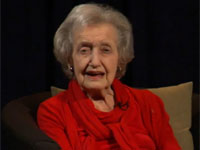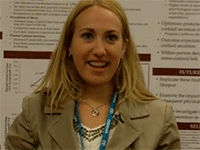Stereotype Threat, Self-Worth, and God’s Love
People who experience stereotype threat may depend on outside factors such as god’s love for confidence and self-esteem. These findings were presented by Claribel Candelario Martinez at the 24th APS Annual Convention in Chicago.
Previous research shows that people exposed to stereotype threat — that is, “situations placing them at risk for confirming negative in-group stereotypes” — are more likely “to underperform on challenging tasks.” Women, for example, may feel threatened by (and underperform on) difficult math problems due to the stereotype that women lack the ability to excel in math.
Candelario Martinez and her coauthors designed a study in which female participants had to complete a math task conducted by a male experimenter. Female participants in the non-diagnostic condition were told that the test was primarily designed to measure the problem-solving process and that the test was not based on their math abilities. On the other hand, the participants in the diagnostic condition were advised to take the test seriously because it measured the cognitive factors involved in solving math problems and was designed to measure math abilities.
The researchers found that participants in the diagnostic condition rejected the importance of academics and reported depending on the love of god as a crucial part of their lives. The researchers concluded that exposure to stereotype threat led people to disengage their self-esteem from the threatened domain (academics) and rely on other domains (e.g., god) to regain their confidence. Candelario Martinzez hopes that future research will lead to interventions that diminish the effects of negative stereotype threat on women.





APS regularly opens certain online articles for discussion on our website. Effective February 2021, you must be a logged-in APS member to post comments. By posting a comment, you agree to our Community Guidelines and the display of your profile information, including your name and affiliation. Any opinions, findings, conclusions, or recommendations present in article comments are those of the writers and do not necessarily reflect the views of APS or the article’s author. For more information, please see our Community Guidelines.
Please login with your APS account to comment.